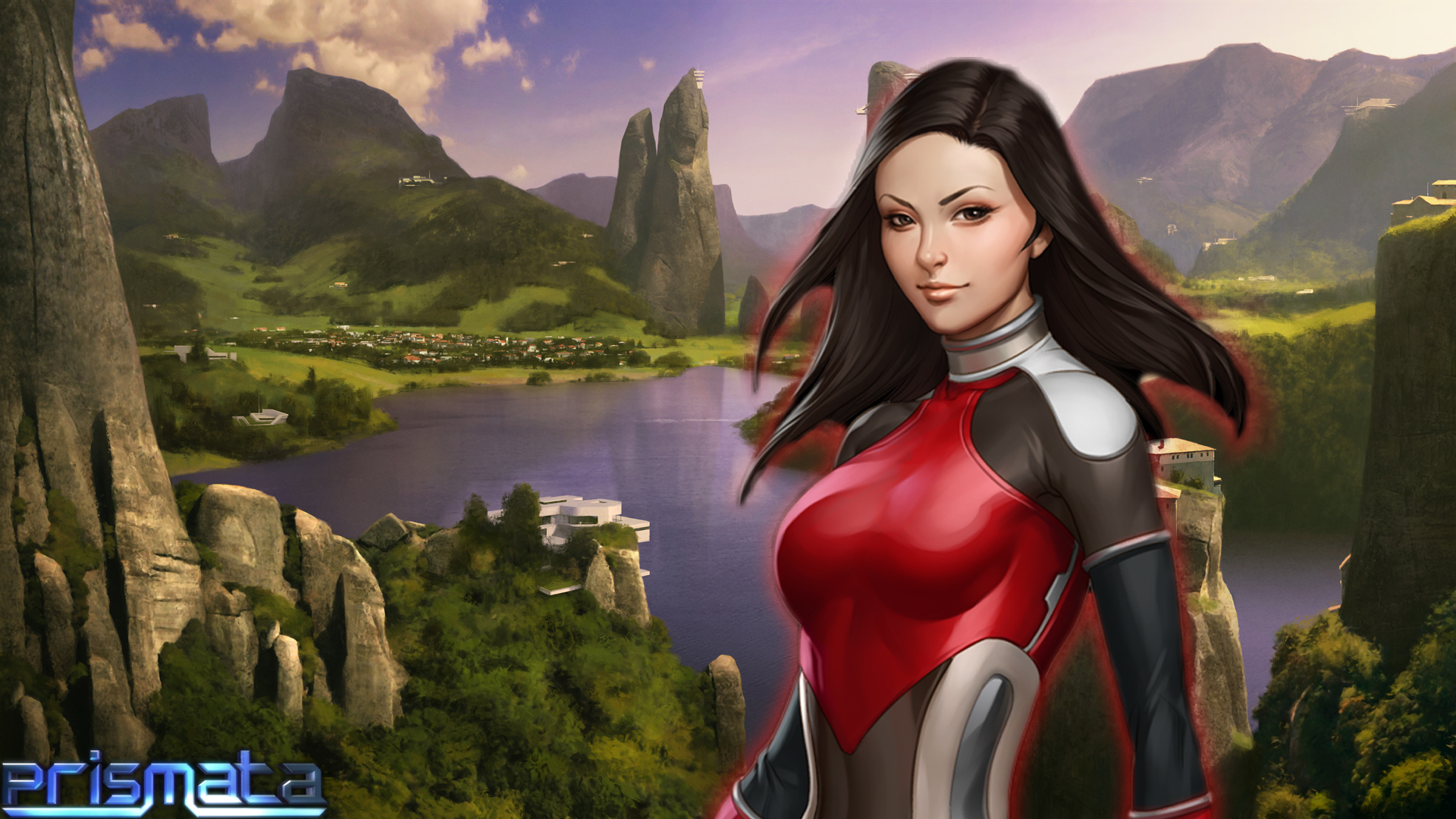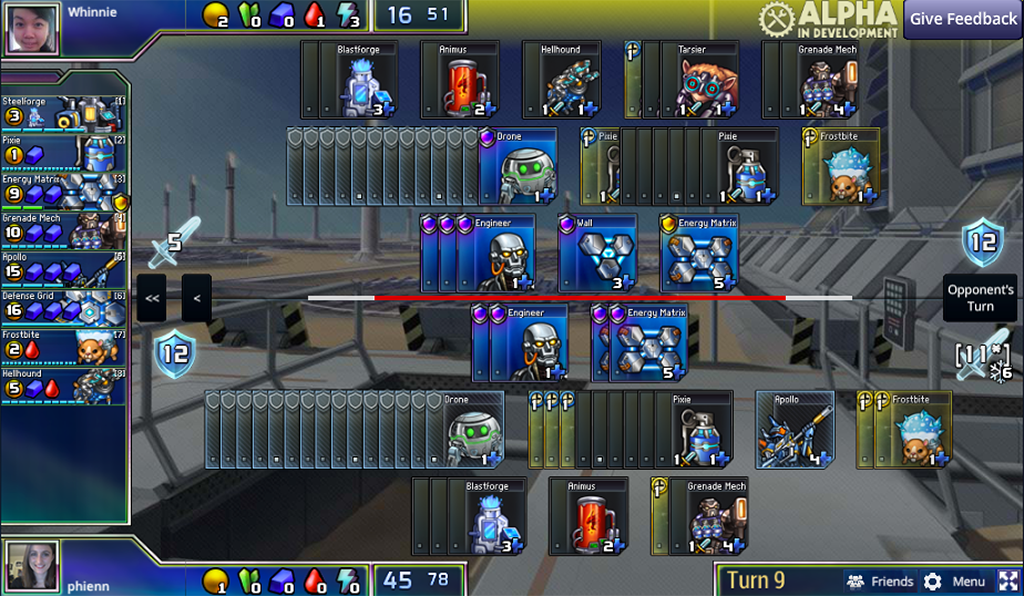
Prismata isn't quite a card game and isn't quite an RTS, but at a certain point I stopped trying to label it and just wanted to keep playing. As Lunarch Studios' first project, it aims to combine the best parts of StarCraft and Hearthstone into something entirely new. Its Kickstarter campaign only managed to hit its goal yesterday, cutting it uncomfortably close before it ends tomorrow. To get a real grasp of how the game plays, watch the video above and watch me play a couple of rounds.
Calling Prismata a card game is fairly misleading. You don't have to collect cards, you don't have a deck, and you don't draw each turn. Instead, it's a card game in pace and appearance only. Both players have access to the same pool of units to build, with 11 choices that stay the same and a separate pool of units that randomly change each time you play. This makes every match take place on an even playing field while forcing you and your opponent to adapt to the available choices. You have to build units that give you basic resources, then use those resources to build attackers and defenders, before eventually overwhelming your opponent.

A more accurate description of Prismata is StarCraft without the RTS element. A confusing prospect, and one that had me very skeptical, but it does provide strategic depth without the necessity of mechanical skill. Prismata has boiled StarCraft down to its economy and its build orders. Micro and macro as we know them are gone and what matters now is the plan you make, not how well you can execute it. Without fog of war, you can always see what your opponent is doing, encouraging adaptation and flexibility. Honestly, it's everything I admire about competitive StarCraft made accessible to someone not willing to do finger exercises to boost their APM.
Still, Prismata has a lot more work to do if it wants to compete with the likes of Hearthstone. The early-access version I played featured an ugly UI and was still unclear in some of its visual language. One of the things that made Hearthstone such a runaway success was its incredible detail in the art, sound effects, and feedback that makes even the smallest action feel satisfying. Lunarch has done a great job making a complex game concept easier to approach, but a more casual audience might still be overwhelmed. I am genuinely glad that Prismata met its Kickstarter goal; it's a game with a ton of potential and I hope that the funding boost will allow Lunarch to give Prismata the polish it deserves.
Keep up to date with the most important stories and the best deals, as picked by the PC Gamer team.


